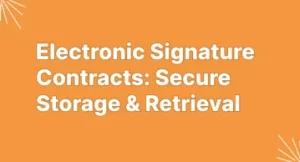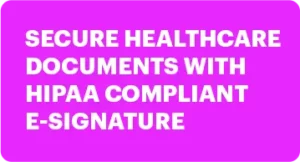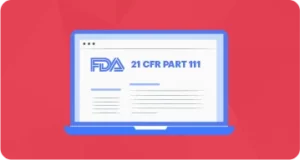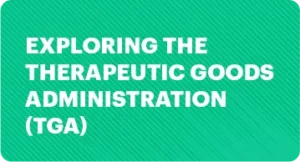Discover What GxP Compliance Audits Are & Who Performs Them
Introduction: What Is a GxP Independent Compliance Audit and Who Performs It?
GxP independent compliance audits are processes developed to ensure that companies adhere to certain standards of quality, safety, and regulatory compliance. This type of audit is a comprehensive review process that is typically conducted by a qualified third-party organization or consultant. The purpose of an independent audit is to identify any areas of non-compliance within the organization and provide recommendations on how to improve these areas.
The regulations that an independent audit reviews are defined by GxP (good practices) standards such as Good Manufacturing Practices (GMP), Good Clinical Practices (GCP), and Good Laboratory Practices (GLP). These standards are designed to ensure that products, services, and processes are consistently produced and meet all relevant regulatory requirements.
The scope of an independent audit is tailored to the specific products and processes of the organization and may include personnel management, facility management, record keeping, quality assurance and control, product and process design, and technical operations. The audit must be conducted by a qualified and experienced auditor who is familiar with the applicable regulations and has the necessary expertise to effectively assess the organization’s procedures and processes.
Overview of Regulatory Framework for GxP Audits
Good manufacturing practices (GMPs) are guidelines used to ensure products are consistently manufactured, packaged and stored with adequate quality control. GMPs are designed to ensure that finished products are safe and reliable for consumers, and comply with applicable laws and regulations. Compliance to these standards is constantly monitored through GxP independent compliance audits.
The regulatory framework for GxP audits includes International Conference on Harmonization (ICH) Q7A Good Manufacturing Practice Guidance, FDA inspections and Health Canada Inspections. These frameworks provide guidance on basic requirements for production, quality assurance, distribution and other important activities related to the safe manufacture of products. Depending on the product, they also include guidelines for validation of processes and equipment used in the manufacturing steps.
Organizations can be audited to check compliance with regulatory frameworks and to ensure they have procedures and controls in place to prevent non-conformance with GMPs. In an audit, an auditor will evaluate, inspect, and verify the various processes, systems and documents associated with the regulatory framework to ensure compliance with all applicable standards.
Some examples of common areas auditors assess include safety, quality management, security, operational processes, document control, process validation, data integrity and equipment maintenance. These assessment criteria are aligned with the applicable industry standards to help guarantee the safety and efficacy of products.
Tips to Prepare Your Organization for an Independent Compliance Audit
An independent GxP compliance audit is a critical part of any regulatory framework. To be successful, you must ensure that your organization is well-prepared and can provide evidence for compliance with relevant regulations.
It is important to understand that preparation is key to the success of any audit. Before an audit takes place, you should have all the necessary documentation and processes in place. Here are some tips that can help you prepare your organization for a GxP independent compliance audit:
- Create Checklists: Create comprehensive checklists of all of the steps required for compliance. This will help you keep track of your progress and ensure that all areas of compliance are addressed.
- Communicate with Auditors: Ensure that your representatives are ready to communicate with the auditors. This will help smooth the process and also allow you to better understand the compliance requirements.
- Train Employees: All employees should be trained on the GxP audit process and their roles in it. This will ensure that everyone is aware of what needs to be done and how it can be done effectively.
- Review Procedures: Review existing procedures and document them for accuracy. This will ensure that the audit process is efficient and effective.
- Test Equipment: Make sure all equipment is properly tested and functioning before an audit takes place. This will avoid surprises and ensure that the audit is successful.
By taking these steps prior to the audit, you can ensure that your organization is prepared for a successful audit experience.
What You Can Expect During the Audit
Auditing is a critical process for any organization, as it ensures compliance with regulatory standards and industry best practices. During an independent GxP compliance audit, there are certain aspects to expect.
Firstly, the auditors will review the current conditions and systems in place within the organization. This includes evaluating how the processes and procedures are being managed and if they comply with the required regulations or benchmarks. The auditors may also ask to review official documentation, such as documents related to the Quality Management System (QMS), or any other relevant materials.
The auditors will also observe personnel activities and operations, which may include observing how the staff performs tasks related to the expected standards. They may also interview key personnel who can provide additional information regarding organizational activities and processes. The aim is to understand how the organization works and whether it meets the outlined goals.
The auditors typically identify any gaps in existing systems, processes, or documentation. Based on this, they will recommend any changes that need to be made in order to ensure full compliance. It is important to note that not all recommendations will need to be implemented immediately; however, it is important to ensure that a plan is in place for achieving long-term compliance.
Overall, when preparing for an independent GxP compliance audit, it is helpful to understand what to expect during the process. Auditors will review your systems and processes, observe operations, and provide suggestions for improvement. It is important to communicate openly and ensure that any changes are handled effectively.
Having the right processes, procedures and documentation in your organization is essential for any successful GxP Independent Compliance Audit. You must be able to provide complete, accurate and up-to-date records that can pass a comprehensive audit. To do this, you need to have all of your worker-related policies, training records, test plans, and other applicable records readily available.
Organizations should develop a system for tracking relevant documents. It is important that all information is kept current and up to date. Additionally, staff members should be aware of the policies and procedures that are used to comply with GxP regulations and standards. In order to ensure that the organization is compliant with all regulations, regular audits and reviews should be conducted.
When preparing for an audit, you will need to create checklists that cover all of the necessary procedures and documents that would be required. This helps ensure that all areas of the organization are addressed in the audit. All personnel performing the audit should be thoroughly familiar with the process and should have a good understanding of what to expect from the audit.
Data collected during the audit should be organized and documented according to specific standards. Any deviation from the expected results should be noted and addressed. Additionally, it is important to monitor changes in the workplace and document them. This allows for continual improvement of the audit process.
Finally, documenting the audit process is key to success. All documents related to the audit should be kept in an organized manner and be easily accessible. This is important so that the results of the audit can be reviewed and improved upon in the future.
Benefits of Conducting GxP Compliance Audits
GxP independent compliance audits have numerous benefits for any organization. Firstly, they provide an impartial and independent assessment of risk and compliance within the organization, allowing companies to identify areas of non-compliance or potential risk that might be overlooked from internal audits. This helps organizations stay aligned with applicable laws and regulations, and ensures regulatory compliance.
These audits also allow for a thorough review of organization processes, along with a review of the quality manual, training protocols, laboratory records, SOPs, and other relevant documents. In addition, these audits can serve as preventive measures, as timely corrective actions that need to be taken can be identified and implemented without further delay.
Moreover, these independent compliance audits enhance organizational confidence and reputation, providing credibility to the organization’s operations. Additionally, these audits facilitate continuous monitoring and improvement in the organization’s quality management systems, which is beneficial in many ways.
GxP compliance audits are often mandatory for certain corporate entities, or when third-party suppliers/contractors are involved. In such cases, it is important for organizations to invest in regular audits, for both short-term and long-term gains.
Role of a Consultant or Qualified Third-Party Provider
Organizations dealing with the evaluation and management of GxP (Good Practice) related systems, processes, and procedures must meet specific regulatory requirements. Ensuring compliance with these regulations is critical, and organizations often engage qualified third-party consultants or providers to help meet these goals.
Consultants and providers bring significant domain knowledge, objectivity, and experience to the process. They can provide internal assessments for adherence to GxP regulations and develop audit plans. Additionally, they can also offer advice and guidance on how to address audit findings if non-conformance is discovered.
Third-party providers also bring expertise in conducting risk-based audits, which allow organizations to focus on areas of potential non-compliance. This makes the process much more efficient and cost-effective, ensuring many resources are not wasted.
These consultants or providers also ensure compliance with federal regulations and help organizations maintain a continuous state of preparedness if something goes wrong. They can provide guidance on the preparation of documents necessary to maintain an effective quality control program.
Overall, engaging a third-party consultant or provider for GxP compliance audits can be extremely beneficial for organizations. They provide a wealth of knowledge and experience that allows organizations to focus on areas of potential non-compliance and ensure an effective quality control program.
Best Practices for the Audit Process
When and if you decide to move forward with a GxP independent compliance audit, it’s important to establish good best practices to ensure success. It is critical during the audit process to ensure that all processes and procedures are in accordance with the set regulatory standards. Here are some key best practices that should be followed:
- Develop and implement appropriate Standard Operating Procedures (SOPs) and other internal documents.
- Make sure to keep records of any changes within your company or process.
- Develop a detailed audit plan outlining the objectives and scope of the audit.
- Work with a qualified third-party provider who has experience conducting GxP audits.
- Follow-up and assess progress regularly during the audit process.
- Develop and distribute comprehensive training to staff members before the audit.
- Hire experienced personnel trained in the management of GxP audits.
- Ensure all documentation is accurate and complete.
- Organize and review data from the audit process.
- Ensure any findings or issues are addressed in a timely manner.
By taking the time to implement the necessary best practices before, during, and after the audit process, you can help to ensure the success of any GxP compliance audit.
Ensuring Quality Assurance Throughout the Process
Quality assurance is essential to conducting an effective GxP Independent Compliance Audit. When conducting a GxP audit, it is important to ensure the following:
- The auditor is technically qualified and adequately trained to perform the audit.
- The audit plan and scope of the audit are clearly defined.
- The auditor has appropriate resources in order to complete the audit.
- The auditor has access to the necessary instrumentation and other forms of documentation.
- Adequate documentation is present to support findings and recommendations.
- The audit objective is clear and attainable.
Auditors must ensure that all the activities carried out meets the requirements of the applicable regulations, such as Good Clinical Practice (GCP), Good Manufacturing Practice (GMP) or Good Laboratory Practice (GLP). This will help guarantee quality of the audit process and support evidence-based decision making.
In addition, organizations should consider conducting internal audits on a regular basis. These periodic evaluations can help identify any gaps in compliance or potential areas for improvement. This will further ensure that companies remain compliant with applicable regulations and maintain the highest quality standards for their products and services.
Ensuring Transparency After the Audit
Once an independent compliance audit has been conducted, it is important to ensure that the results of the audit and any findings are communicated in a transparent way. This transparency will help to promote a culture of compliance and accountability, and encourage trust and goodwill between all parties involved in the audit process.
The results of the audit should be shared with senior management and other stakeholders to help ensure that everyone is aware of the status of the organization. Through a comprehensive report of the audit findings, management can take corrective action to address any identified issues or risks. Additionally, the report should include recommendations on how to improve processes or procedures to ensure long-term compliance.
Transparency also helps to ensure that the results of the audit are not misinterpreted or misconstrued. By communicating the audit results clearly and accurately, the organization can make sure that everybody understands the implications and importance of complying with regulatory guidelines.
Effective Training and Communication Methods Post-Audit
Once an independent compliance audit has been conducted, it’s important to have effective training and communication methods for the results. This is important in order to ensure that everyone involved in the process understands the findings of the audit and knows how to properly address any issues that have been identified.
Depending on the organization, there are several ways to go about making sure everyone is on the same page. If the organization is large and has departments with different levels of involvement in the audit, there should be a separate briefing for each department about the results. For smaller organizations, a group meeting could be an effective way to get everyone up to speed. In both cases, the auditor should provide guidelines or checklists for how to implement any changes necessary.
It’s also important to have some form of ongoing training and monitoring after an independent compliance audit. This process should include regular check-ins to make sure the organization remains compliant and any potential issues are addressed in a timely manner. Establishing a system that includes reports or reviews over time can help prevent future compliance problems.
In addition to providing training and guidance to employees, it’s important to make sure that there is transparency when communicating the results of the audit to stakeholders. Communicating the findings openly and honestly can help foster trust between the organization and its stakeholders.
Conclusion
GxP independent compliance audits are an essential part of compliance with regulatory requirements for Good Manufacturing Practices (GMP) and other industry standards. When executed properly, organizations can benefit from enhanced visibility into current processes and quality assurance standards while also preparing for future audits. With effective planning, training, and communication post-audit, organizations can achieve compliance with applicable regulations.
Regular GxP independent compliance audits can ensure that companies remain compliant with important regulatory requirements and maintain quality controls throughout their operations. When conducted with the help of a consultant or third-party provider, organizations can benefit from an expert assessment of their processes, procedures, and documentation while protecting their reputation and providing shareholders with peace of mind.
FAQs About GxP Independent Compliance Audits
1. What is a GxP Independent Compliance Audit?
GxP (Good Practice) compliant audits are independent evaluations of compliance with established protocols and regulations. An audit is performed by a qualified third-party provider to assess the quality and compliance standards of an organization or process. They help ensure safe, effective, and compliant products, processes, and production systems.
2. Who performs a GxP compliance audit?
An independent auditing firm or qualified consultant typically performs a GxP audit to ensure that all protocols and regulatory requirements are being met. This audit serves to protect consumer safety and the integrity of the end-product.
3. What should I do to prepare for a GxP audit?
To ensure a successful audit, organizations should develop a thorough knowledge of their operations and advance their document management systems. Establishing and enforcing accountability and developing a detailed audit plan can also be beneficial.
4. How will the audit be conducted?
During the audit, the auditor will review protocols, quality assurance processes, documentation, employee training and qualifications, customer complaints, and other similar activities. The audit will provide an assessment of compliance status and any potential areas of improvement.
5. What documents and procedures do I need to provide?
Organizations should provide records that demonstrate compliance with GxP requirements, such as risk assessments, incident reports, validation documents, and standard operating procedures.
6. What are the benefits of conducting GxP compliance audits?
Conducting regular GxP audits help organizations to identify, address, and prevent recurring issues, thereby reducing the risk of poor quality products and services. Additionally, audits can help identify and correct problems more quickly and thoroughly, as well as enhance organizational confidence in their compliance procedures.
7. How can a consultant or qualified third-party provider help?
Consultants and third-party providers can offer expertise and best practices that help establish a compliance culture and satisfactory audit results. They can also provide valuable insight and guidance to ensure that requirements are properly implemented, and assist in developing an effective audit strategy.





